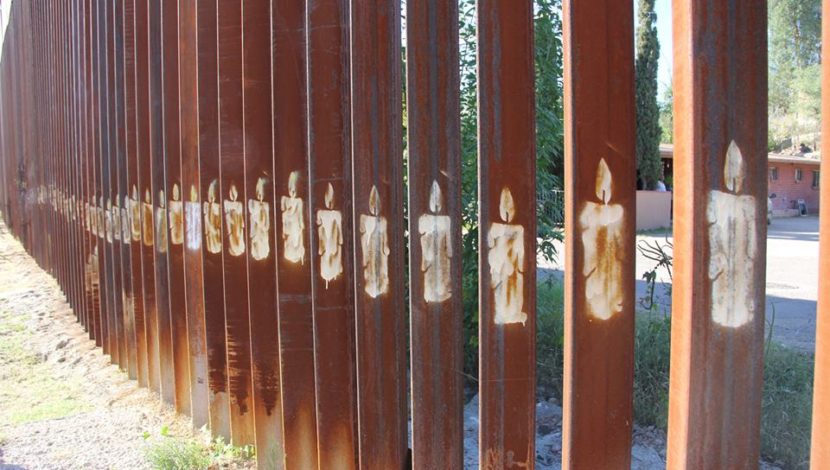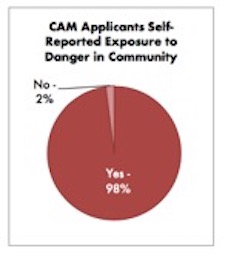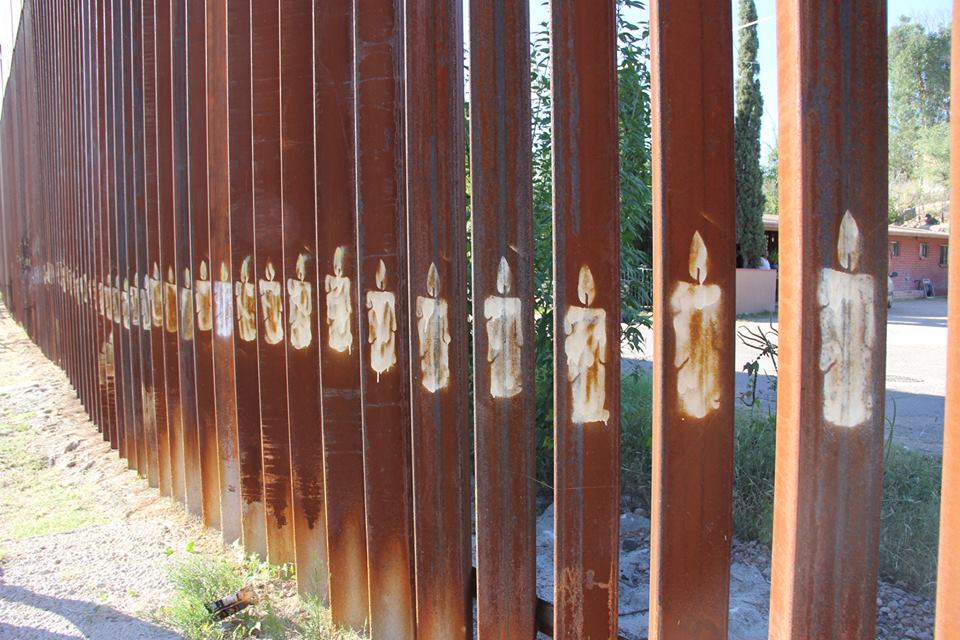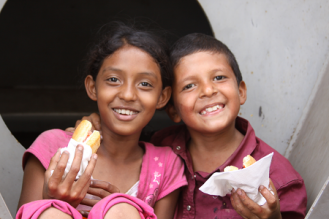The Unitarian Universalist Service Committee advances human rights through grassroots collaborations.
Asylum-Seeking Families at Risk Under Trump’s Aggressive Immigration Policies

By Amber Moulton on March 3, 2017
In just over a month, the new administration has executed a multi-pronged assault upon refugees and asylum-seekers who need humanitarian protections that the United States can and must provide.
Legally, people who are on U.S. soil, and meet the definition of a “refugee” should be granted asylum protections. This means that they face or fear persecution if they were returned to their country of origin based on their race, nationality, religion, political opinion, or membership in a particular social group.

The United States has seen a dramatic rise in asylum claims in the past decade, largely fueled by escalating violence and widespread international gang activity that has created a deadly crisis in El Salvador, Honduras, and Guatemala, often referred to as the “Northern Triangle” of Central America. Families seeking asylum have fled the region at incredibly high rates. From 2008-2014, asylum applications increased over 1,000% in the countries that neighbor the Northern Triangle and rose 370% in the United States.
In FY2016, Customs and Border Protection (CBP) apprehended nearly 60,000 unaccompanied minors and 77,857 families nationwide, most at the southwestern border. Many of these families were Central Americans seeking asylum in the United States. The U.S. Citizenship and Immigration Service reports conducting nearly 100,000 credible fear screenings of asylum seekers in FY2016, with extremely high granting rates: nearly 80% of people that pundits and critics call “illegal immigrants” have a credible fear of persecution in their home country.
Refugees from the Northern Triangle
In 2014, the Obama administration created a limited refugee resettlement program allowing some children in the Northern Triangle to apply for refugee protections and be reunited with a parent who is a legal resident in the United States. The program was touted as saving children the dangerous journey through Central America and Mexico, and allowed them to seek asylum at the U.S. border. Since November 2014, there have been nearly 11,000 applications for the program and approximately 1,800 children have been reunited with their parents here in the United States with either refugee status or humanitarian parole. UUSC researchers spent the last year conducting research about how to make the Central American Minors In-Country Refugee Processing Program (CAM) even more effective and have direct testimony from CAM participants about the need for this life saving pathway to safety.
The children who use CAM are in imminent danger at the hands of gangs and corrupt police where they live. When asked why they applied for refugee status, CAM applicants have shared reasons like:
- “I received threats from a gang member. Before that, two friends of mine who played on the same soccer team in which I played appeared dead . . . he told me that if I did not want something to happen to me or be killed, I should leave the neighborhood.”
- “My fear sometimes is that my baby will get sick at night . . . no one leaves and if they leave they have to be accountable for where they go to the gangs. . . [my baby] suffers from epilepsy and I have to go for treatments in San Salvador, when we go we try to do everything fast, to return early . . . it is very difficult to live constantly with fear.”
- “I am afraid to leave the house now because gang members meet outside my house . . . My family and I are in danger . . . if we do not give the [rent] they are going to kill one of us . . . you cannot live in peace.”
However, President Trump’s January 27, 2017 executive order suspending all refugee resettlement for 120 days likewise suspended CAM. While a handful of CAM refugees who had already been granted refugee status have been able to fly to the United States in the weeks since the 9th Circuit Court stayed the presidents’ executive order, the administration has effectively halted refugee processing. This avenue to refuge is now closed for thousands of Central American children who may have to begin their application almost from scratch when and if CAM is reinstated.

With the refugee program halted, children will need to travel through Mexico to seek asylum at the U.S. border. There, too, the administration appears poised to cause immense harm to asylum-seeking families and children. DHS Secretary Kelly’s recent memos indicate that the department will:
- Extend the border wall to make entry into the United States more difficult.
- Deport asylum-seekers to Mexico or place them in U.S. detention centers while they await a decision on their case, placing families in inhumane prison-like conditions that we know causes lasting harm.
- Strip protections for unaccompanied children that are guaranteed by law and charge parents with “human trafficking” for bringing their children to the United States.
Alarmingly, reports from El Paso, Texas, indicate that CBP agents have already turned asylum-seekers back from official ports of entry, denying them even the chance to make their asylum claim.
